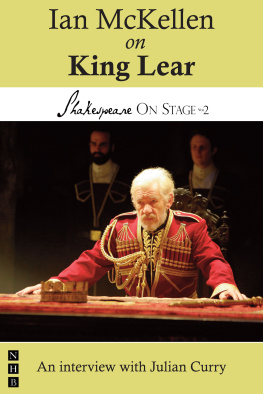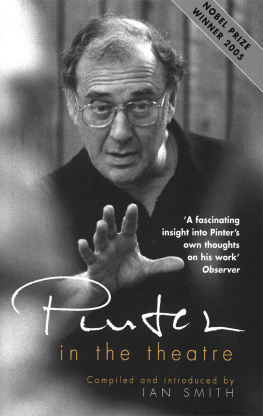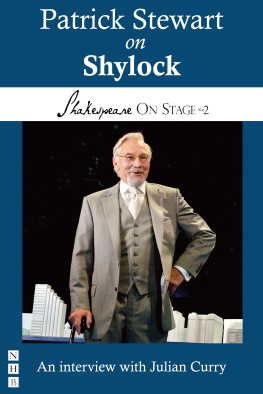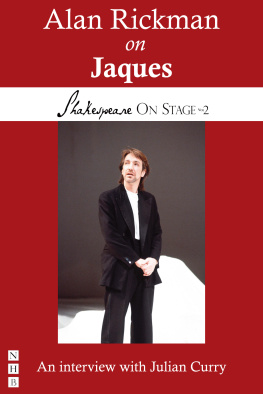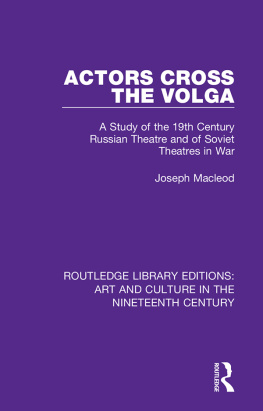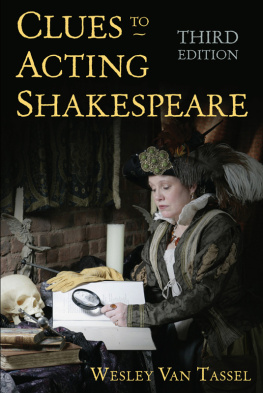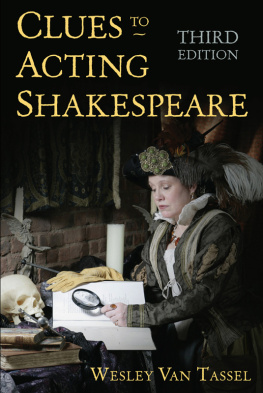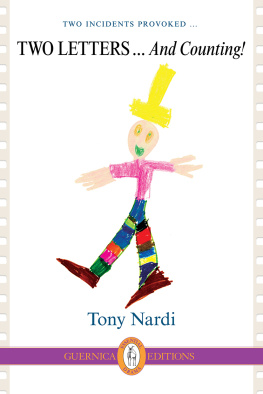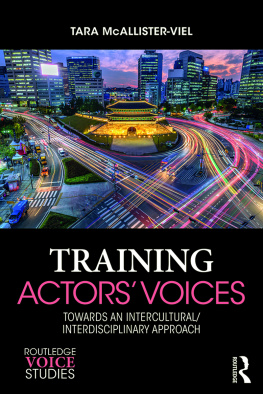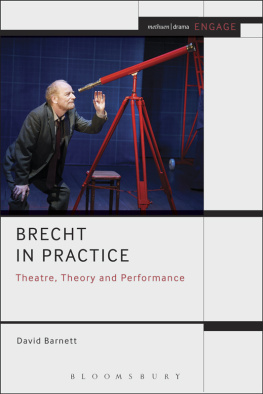ACTORS VOICES

First published in 2012 by Oberon Books Ltd
This electronic edition published in 2012 by Oberon Books Ltd
521 Caledonian Road, London N7 9RH
Tel: +44 (0) 20 7607 3637 / Fax: +44 (0) 20 7607 3629
e-mail: info@oberonbooks.com
www.oberonbooks.com
Introduction and this collection copyright Patrick OKane 2012
Patrick OKane is hereby identified as editor of this work in accordance with section 77 of the Copyright, Designs and Patents Act 1988. The editor has asserted his moral rights.
You may not copy, store, distribute, transmit, reproduce or otherwise make available this publication (or any part of it) in any form, or by any means (electronic, digital, optical, mechanical, photocopying, recording or otherwise), without the prior written permission of the publisher. Any person who does any unauthorized act in relation to this publication may be liable to criminal prosecution and civil claims for damages.
A catalogue record for this book is available from the British Library.
Mobipocket ISBN: 978-1-84943-320-4
EPub ISBN: 978-1-84943-336-5
Cover design by James Illman
Visit www.oberonbooks.com to read more about all our books and to buy them. You will also find features, author interviews and news of any author events, and you can sign up for e-newsletters so that youre always first to hear about our new releases.
INTRODUCTION
I HAVE BEEN an actor since leaving Central School of Speech and Drama in 1990. In the subsequent years it has been my good fortune, great privilege and occasional frustration to have worked, across the media of film, television and theatre, on a regular basis. In 2005, to my great surprise, I was invited to apply for a NESTA Fellowship. To my even greater surprise, my application was successful. At the heart of my fellowship was an interest in how I and other actors might usefully articulate our personal processes and consider the actors position within the process of making theatre.
I had not always been so interested in analyzing the hows and whys of what actors do; I remember, as a young actor, telling my agent, when she asked me what it was I wanted to do, that I wanted to play the big parts in the big plays in the big theatres. In a sense, little has changed, for I still hunger to be involved in the telling of the great stories that define and engage us as a society and I am still excited by the genuinely, viscerally transformative powers of theatre. In 1998, the birth of my first child prompted me to scrutinize just what it was I was doing, for I would no longer be doing it simply for my own creative expression but also to provide for my children. At that time I had also experienced the archetypal volte-faces that actors are prey to. Twelve months previously, I had enjoyed the life of a West End actor in an acclaimed and popular production, followed by a film and TV production, before the longest fallow period of my career. At the time of my sons birth I was playing a great part in a great play in a room above a pub in West London, for no money. During the West End production, I had also been dropped by my agent when I had the temerity to express a desire to participate in my own career. This was a shocking experience for me. I had long appreciated that, as an actor, I had little or no control over a career, as such, because I would never know what was coming next, but I was surprised that a genuine curiosity about how I might best advance my career was received as an attack on the integrity of my agent. I began to take artistic and professional stock. So I took down my old university books that had been gathering dust on my shelves and began to re-read them with no particular expectation, only to be amazed at how eloquently they now spoke to me, how profoundly they affected me, giving an articulacy to those things that Id been unconsciously grappling with and stumbling towards in my everyday work as an actor. I also began to consider the broader hierarchies, which go beyond the particular circumstances of personality clashes and which affect the business of being an actor.
In 2000 I was invited to be one of a team of artistic associates at Nottingham Playhouse. I used this opportunity to work as a director on unperformed play texts with young actors and professional actors, based in Nottingham. This experience prompted me to apply for a three-week intensive directors course at the National Theatre Studio, for emerging directors. By having substantial access to a broad range of visiting tutors, we were able to experience many different directors processes both practically and conceptually. Two events occurred on that course, which set me on the path to constructing this book of discourses:
When I revealed that the bulk of my experience had been as an actor, my status, within the group of students, fell through the floor and it took considerable effort to regain the lost ground over the rest of the course.
Nearly every visiting tutor/director talked about what actors want and how you need to deal with them in rehearsals.
I was disappointed that my fellow student directors showed little interest in hearing what an actors experience of rehearsals and performance might have been and I was curious about what it was that I, as an actor, wanted of a director in a rehearsal process. I began to realize that much of what is written about acting and actors has been written by academics and directors, but, celebrity biographies apart, little was known about the thoughts and creative processes of working and, indeed, non-working actors.
What follows is not an actors manual, but a range of very personal reflections part biographical, part process analysis and part contemplation of art, theatre and our role, as actors, within the artistic landscape based on the evidence of each individuals articulated experience. I have tried to get to the essence of what the reality of being an actor in the theatre is, as opposed to the notion that the public might have of fame and fakery and to unravel what it means to each of us to be an actor. The conversations which follow are focused primarily on mainstream literary theatre-making practice. The actors you will meet have all worked and continue to work within the framework of our mainstream, literary theatre. In addition to their work on stage, sometimes out of neccessity, curiosity or, occasionally, frustration, some of them also teach in drama schools, some have become writers and some have become directors and one, at the time of our conversation, had fallen out of love with the theatre. By dint of these alternative contributions to the theatre landscape, they have all been forced to examine their own theatrical values as well as to confront the limits of their ambitions. I think these various divergences serve to enrich the experience and perspectives of each actor in turn. I cannot claim, nor did I attempt, to create a representative picture of what it is to be an actor, but through the broad range of experiences and disparate points of interest detailed here, some common themes, shared values and points of contention emerge with regard to actor training, rehearsal periods and director/actor dynamics. Furthermore, all the actors who have contributed to this book share a passion for their art and a concern for how we might make it better, which goes way beyond the limited horizons of self-interest. Each actor has seen this as an opportunity to contribute to a conversation about how we make the making of theatre better for everyone actors, directors, writers and, of course, audiences.
I would like to thank each of the actors for the generous way in which they have given their time and energy to share their reflections on the how, what and why of what they do. I also applaud their courage in this because, for many actors, to give articulation to their methodology is to bestow the kiss of death upon their art. I appreciate such an apprehension, for while words can provide a ready portal for a fertile imagination, they can also entrap a creative process in a mesh of cerebral definition, limiting other possible expressions of creativity. Furthermore, while an academic or cerebral intelligence is undoubtedly very useful, it is not necessarily the primary intelligence for the actor in the moment of rehearsing and creating a performance.


